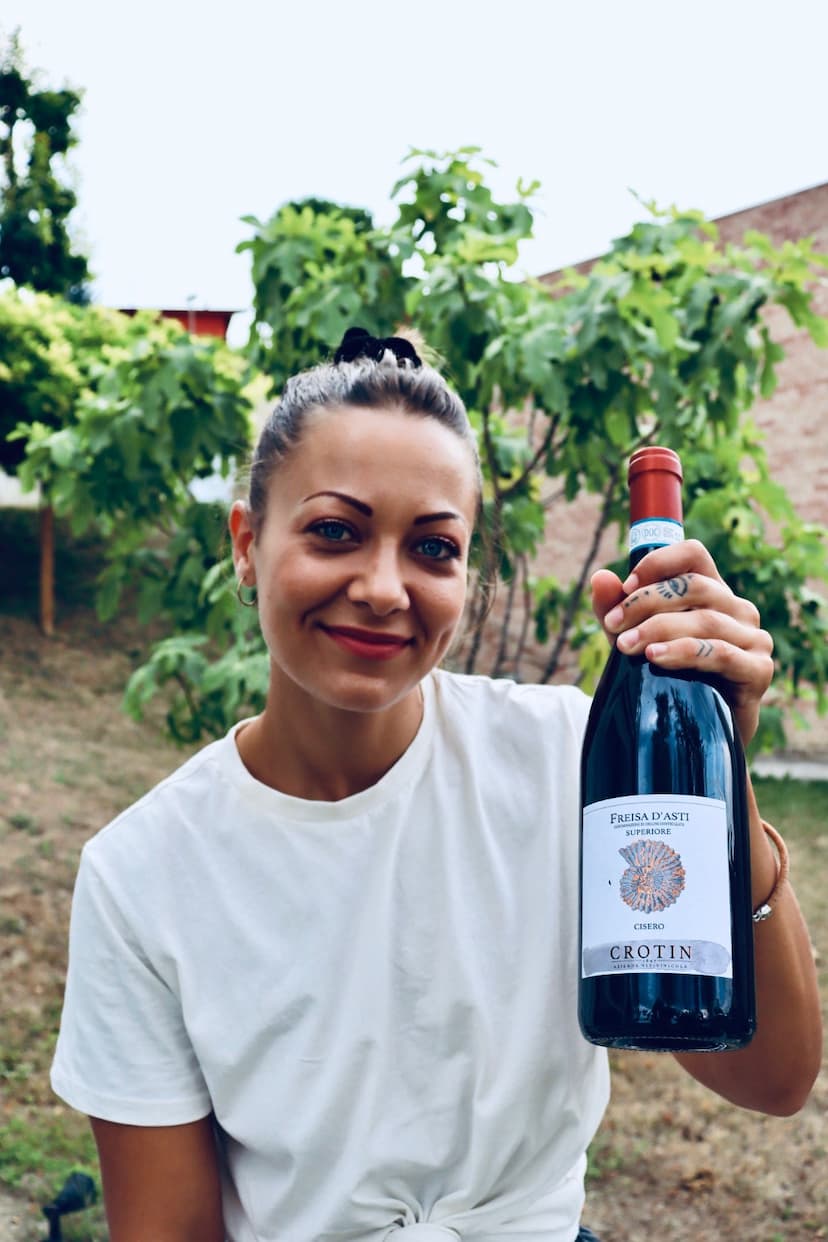Crotin

We are lucky to have a great group of friends in the area to share our passion with, we organize dinners, blind tastings, verticals during which we all learn from each other. Our friend Fabio, who is a lot into natural wine (on a island in Sicily working for a winery at the moment) brought us a bottle of Crotin suggesting we try it and go visit them, so we did. You might know how skeptical I am when it comes to natural wines, as I find most of them not particularly pleasant and most of the time they end up being just a marketing operation, but let’s save this discussion for another time, just pay attention when you buy them.
First of all, Crotin winery is in Maretto, at about an hour drive from Alba, so pretty far and different from the usual Langhe landscape. The Monferrato area is still untamed and rich in biodiversity: the majority of the land is wild, natural forest and vines alternate with corn and fruit trees.
The terroir here is a mix of clay and sand, and it has one of the highest density of marine fossils in the entire region, as Piemonte used to be completely under water. Crotin approach to farming and winemaking is minimalistic: green manure, natural yeasts, low intervention in the cellar, no chemicals, no added SO2, all in a beautiful setting surrounded by orchards, animals and very few humans. Federico Russo, half Piemontese, half Calabrese (my mum is from Calabria so I immediately recognized the accent) runs the same show his great grandfather started in 1897 with great passion and love for the land.
In this area, Freisa is king: a cousin of Nebbiolo, often described from a tasting perspective as a cross with Barbera, Freisa has good acidity, tannin, a floral and mineral nose, especially when it comes from this area. I believe Freisa could be the next big thing in Piemonte.
They also make a Grignolino, which is a beautiful easy-drinking red, with great aromatics and a light body. Innovative and first of its kind is their Malvasia Moscata, a dry white wine with an incredible tropical, herbal nose that is one of the most gastronomic wines I’ve tasted.
Crotin’s wines are clean, very expressive and show all of that marine influence that comes from the land (which is why there is a big fossil on the label), an incredible new effort to make terroir-driven, natural wines in uncharted waters. Less than 5000 cases are produced every year.
